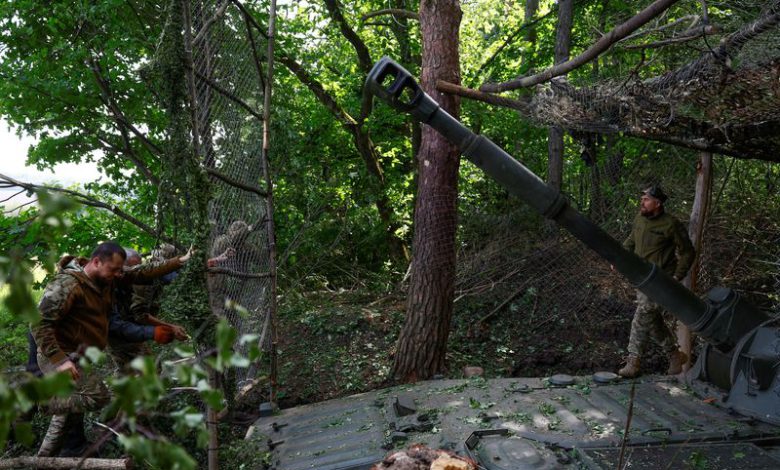Top NATO commander says Russian troop numbers insufficient for Kharkiv breakthrough

BRUSSELS (Reuters) – NATO’s top commander said on Thursday he did not believe Russia’s military has deployed enough troops to make a strategic breakthrough in the region around Kharkiv in northeastern Ukraine.
General Christopher Cavoli, NATO’s supreme allied commander Europe, said he was confident Ukrainian forces would hold their lines in the region.
Russia last week opened a new front in the Ukraine war when small groups of highly mobile units pushed swiftly over the border into the Kharkiv region, forcing Ukraine to rush in troops from other areas.
“The Russians don’t have the numbers necessary to do a strategic breakthrough,” Cavoli told a press conference at NATO headquarters in Brussels after a meeting of military chiefs from across the transatlantic alliance.
“More to the point, they don’t have the skill and the capability to do it, to operate at the scale necessary to exploit any breakthrough to strategic advantage,” he added.
“They do have the ability to make local advances and they have done some of that. They’ve also made some local losses.”
He did not give any figures for the number of troops Russia has deployed in the area.
Admiral Rob Bauer, the chair of NATO’s military committee, told the press conference he expected “serious improvements” soon in the amount of ammunition Ukrainian forces would receive.
Russian forces have been outshelling Ukrainian troops sometimes by a ratio of 10 to one, according to officials.
Ukraine’s ammunition shortage was partly down to a months-long delay in getting a major military aid package for Ukraine through the U.S. Congress.
Cavoli said Ukraine’s allies were now shipping “vast amounts” of ammunition and short-range air defence systems and “significant amounts” of armoured vehicles that would help fight the Kharkiv advance.
“I’m in very close contact with our Ukrainian colleagues. And I’m confident that they that they will hold the line,” he said.
(Reporting by Andrew Gray, Benoit Van Overstraeten and Tassilo Hummel; Editing by Cynthia Osterman)
Source link



